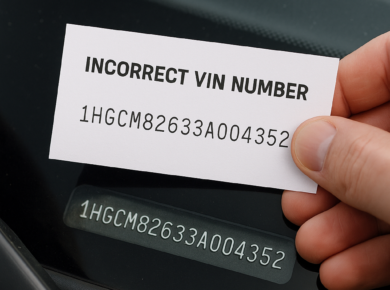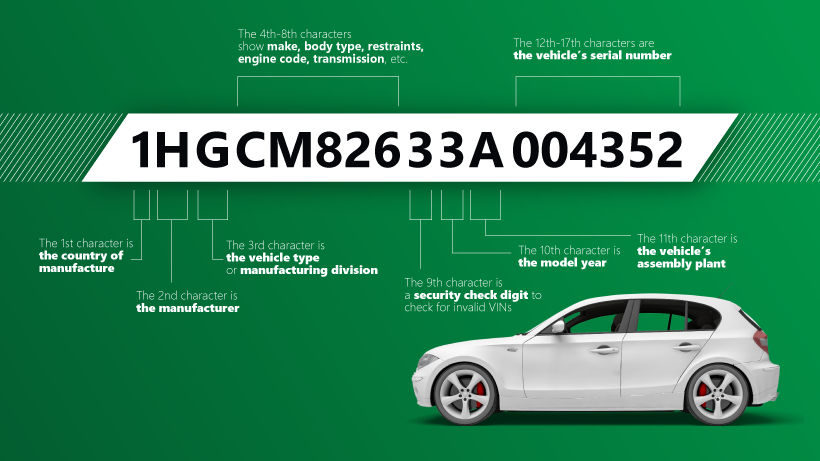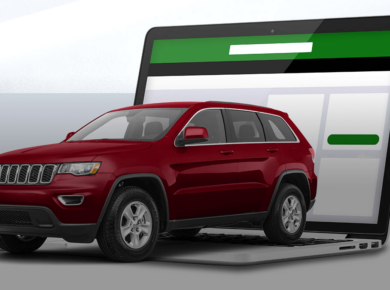When you have an automotive website, a VIN decoder API is a crucial tool. A VIN, or Vehicle Identification Number, is a unique 17-digit code that provides vital information about a vehicle, including its make, model, year, and more. Therefore, VIN decoder is a tool that allows you and your users to decode VINs and retrieve vehicle data quickly and accurately. Today, VIN decoder API is arguably one of the most widely used APIs in the automotive industry.
No matter of the size of your website, data accuracy, coverage, and API uptime are key criteria when choosing a VIN decoder provider for your project. In this guide, we’ll compare some of the VIN decoder API providers, covering both free and paid options. Also, we will explore real-world use cases to help you select the best VIN decoder API for your needs.
What is a VIN Decoder API?
A VIN Decoder API is a web service that allows users or applications to extract detailed vehicle information from a VIN code assigned to every vehicle. When a VIN is sent to the API, it returns structured data such as the vehicle’s make, model, year, engine type, transmission, body style, and country of manufacture. This technology is commonly used by car dealerships, insurance companies, fleet management systems, and automotive marketplaces to verify and display accurate vehicle details automatically. For example, a dealership’s website might use a VIN Decoder API to populate a car listing with technical specifications as soon as the VIN is entered.
Top VIN Decoder API Providers
Here are some of the best VIN decoder APIs available, with both free and paid options to suit different needs.
1. ClearVin VIN Decoder API
ClearVin offers a comprehensive VIN Decoder API that provides detailed vehicle data, including specifications and vehicle history reports. It’s perfect for businesses that need reliable and thorough information about vehicles.
Key Features:
- RESTful API tailored for the automobile-related industries;
- Free demo, test environment, and Integration Support;
- Detailed vehicle specifications (make, model, engine type, etc.)
- High-volume enabled and custom cost-effective solutions for business;
- Regions Covered: United States and Canada.
- Vehicles Covered: Passenger cars and light-duty pickup trucks.
- Model Years Covered: 1981 through 2024, with 2025 models being added currently.
ClearVin offers different packages. The Extended Data feed includes 168 data points, while the Basic VIN Decoder includes 22 data items covering key vehicle specs by VIN. Moreover, you can subscribe for monthly or annual plan depending on your volume and requirements.
Cons:
- Limited info for heavy-duty equipment;
- Decoder works only for the United States and Canada. Unfortunately, European VINs are not currently supported. Read our article “How Does A European VIN Differ From the US VIN?” for more information.
Best For:
- Dealerships, fleet managers, and automotive industry businesses needing comprehensive vehicle data.
- Auto Repair Shops to get detailed specs like engine type, transmission, wheelbase, tires, and recalls for diagnostics and parts matching.
- Parts Suppliers to match parts accurately with the vehicle’s specifications.
- Automotive SaaS Platforms to integrate VIN decoding into vehicle management, quoting tools, or valuation systems, and bundle VIN data with other automotive insights for further resell.
Furthermore, ClearVin offers a range of Vehicle Data APIs apart from basic decoding that provide market values, warranty information, emission checks, DMV title records, car photos, and more, allowing you to tailor the data you use based on your specific business needs. ClearVin API ensures fast response times and easy integration into your applications, delivering extensive data coverage for businesses looking to enhance their products and services.
Key Features:
- Free demo, test environment, and integration support;
- Free for basic lookups, with premium options for full vehicle history reports.
- API VIN decoder with additional vehicle history VIN decoder API features.
Best For:
- Used car buyers or dealerships who want to verify a vehicle’s history before making a purchase.
- Car listing websites to prove vehicle value and clear history
- Car rental agencies to manage inventory and verify specs/condition before onboarding vehicles.
- Auto insurance providers to assess risk, calculate premiums, and verify ownership/title status.
- Lenders and auto financing companies to validate the vehicle’s value, ownership status, and lien records.
2. NHTSA VIN Decoder API
The NHTSA VIN Decoder API is provided by the National Highway Traffic Safety Administration. This VIN decoding API is a great option for users who need basic vehicle information or just check VIN validity, without the in-depth details you’d get from paid versions. Furthermore, this service is free and can be used by anyone.
Key Features:
- Provides vehicle data like make, model, and year.
- Free to use with reliable, government-backed data.
- Check Digit Verification is enabled & Check Digit Calculator
- Regions Covered: United States and Canada.
Cons:
- Limited Data Depth – Doesn’t include proprietary or enhanced specs like market value, warranty, or battery details.
- No Vehicle History – Lacks accident, lien, title, or ownership records.
- No Photos or Rich Media – Text-only data, with no visual vehicle assets.
- No global coverage
- Can Be Inconsistent – Data completeness varies by manufacturer and model year, especially for older or less common vehicles
Best For:
- Small businesses and personal projects needing basic vehicle identification numbers (VINs) and specifications.
3. CarMD
CarMD offers a VIN decoder API that provides accurate vehicle data for buyers, sellers, and owners. The basic API covers year, make, model, engine, trim, and transmission for vehicles from 1981 onwards. On the plus side, the premium API gives dealerships and automotive businesses detailed specs, including battery, engine, and manufacturer information.
Key Features:
- Supports vehicles from 1981 to the present.
- Up to 25 free API requests per month
- Designed for smooth API integration into apps and systems
- Apart from basic VIN details, provides Technical Service Bulletins (TSB) API
Cons:
- The free or basic version may not include deeper specs required by professionals.
- May have limited coverage or relevance for vehicles outside North America.
- Doesn’t include accident reports, ownership history, or real-time market value like some competitors.
Best For:
- Ideal for car buyers, sellers, dealerships, and automotive service providers for high-volume consumption.
How to select Right VIN Decoder API for Your Business
In conclusion, let’s stop on how to select a provider and what pay attention to. Selecting a VIN Decoder API provider requires careful evaluation of several critical factors to ensure data quality, reliable service, and optimal cost efficiency for your application. Key considerations include data accuracy and coverage. Particularly, checking if the API supports VINs globally, for US/North American vehicles, or only for specific regions like Japan/Europe. Not less important is confirming the depth of the data provided and field value (basic specs versus full history, recalls, and accident data). Also, the provider must offer low latency response times and a robust infrastructure to handle your anticipated volume of requests. Additionally, it’s importante to pay attention to uptime detailed and whether provider offers a support.
Finally, thoroughly compare pricing models for your volume, as options range from pay-per-successful-lookup and tiered monthly subscriptions to enterprise-level bulk licensing, ensuring the chosen plan aligns with your business’s current and future transaction volume to maximize return on investment.










